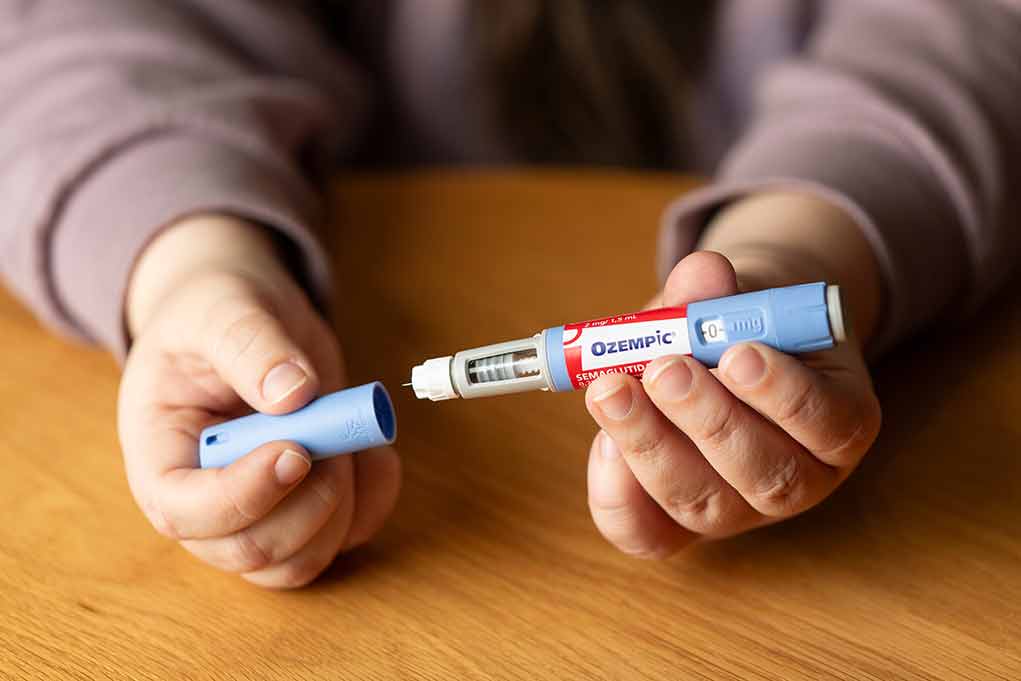
Weight loss surgery outperforms popular injectable drugs like Ozempic by a staggering 5 times, leaving patients and doctors to reconsider the most effective path to sustainable weight management.
Key Takeaways
- Bariatric surgery patients lost 25.7% of body weight over two years compared to just 5.3% for those on medications like Ozempic, according to NYU research.
- Surgery also demonstrated superior blood sugar control compared to GLP-1 drugs, though it remains a more invasive option.
- Up to 70% of patients discontinue GLP-1 drug treatments within one year, significantly reducing their real-world effectiveness.
- Despite surgical options showing better results, GLP-1 drugs remain beneficial for treating type 2 diabetes and reducing risks of cancer and cardiovascular disease.
- Research was funded by the American Society for Metabolic and Bariatric Surgery, which may influence conclusions favoring surgical interventions.
Surgery Dramatically Outperforms Weight Loss Drugs
A groundbreaking study from New York University has revealed that bariatric surgery delivers significantly better weight loss results than popular injectable medications like Ozempic and Wegovy. The research compared sleeve gastrectomy and gastric bypass surgeries with semaglutide (Ozempic/Wegovy) and tirzepatide (Mounjaro/Zepbound) treatments, finding that surgical patients lost nearly five times more weight over a two-year period. This stark difference challenges the current enthusiasm around GLP-1 drugs that have dominated weight loss conversations and celebrity endorsements in recent years.
“Clinical trials show weight loss between 15 percent to 21 percent for GLP-1s, but this study suggests that weight loss in the real world is considerably lower even for patients who have active prescriptions for an entire year,” said Avery Brown.
Real-World Medication Adherence Problems
The study revealed a troubling pattern in how patients use weight loss medications. While clinical trials for drugs like Ozempic report weight loss percentages between 15-21%, real-world results fall drastically short. This discrepancy largely stems from adherence issues, with many patients unable to maintain the consistent injection schedule required for these medications. The discomfort of regular injections, side effects, and cost barriers contribute to a high discontinuation rate among patients prescribed GLP-1 drugs.
“We know as many as 70 percent of patients may discontinue treatment within one year. GLP-1 patients may need to adjust their expectations, adhere more closely to treatment or opt for metabolic and bariatric surgery to achieve desired results,” said Avery Brown.
Weighing Surgical Benefits Against Risks
The superior effectiveness of bariatric surgery comes with important caveats. Surgery represents a more invasive approach with its own risks and complications. Patients who undergo these procedures must commit to permanent lifestyle changes in diet and exercise habits. Additionally, not all patients who qualify for bariatric surgery choose this option due to fears about the procedure, recovery time, or potential complications. The study showed that beyond weight loss, surgical patients also experienced better blood sugar control compared to those taking GLP-1 medications.
Future Research Directions
Researchers acknowledge that both approaches have their place in treating obesity and related metabolic conditions. The study, presented at the American Society for Metabolic and Bariatric Surgery annual meeting, points to several areas needing further investigation. These include identifying factors that might improve outcomes for patients on GLP-1 medications and developing better criteria for determining which patients would benefit most from surgery versus medication approaches. The impact of insurance coverage and out-of-pocket costs on treatment adherence also requires further study.
“In future studies we will aim to identify what healthcare providers can do to optimize GLP-1 outcomes, identify which patients are better treated with bariatric surgery versus GLP-1s, and determine the role out-of-pocket costs play in treatment success,” saId Karan Chhabra.
Potential Research Bias
Critical readers should note that the study was funded by the American Society for Metabolic and Bariatric Surgery, an organization with an inherent interest in promoting surgical options. This potential conflict of interest doesn’t invalidate the findings but suggests the need for independent verification of results. Despite the dramatic advantage shown for surgical interventions, medical experts continue to emphasize that GLP-1 medications remain valuable tools, particularly for patients with type 2 diabetes and those seeking to reduce cardiovascular risks who may not be candidates for surgery.

















